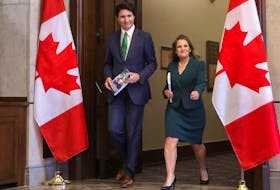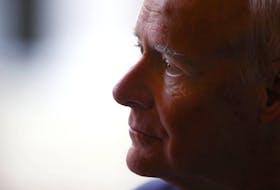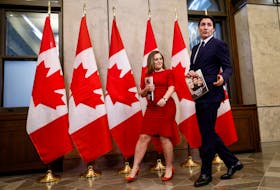In two years, a 25-year-old Vancouver woman we’ll call Elizabeth has gone from slumming it as a student to earning $63,000 per year as an articling clerk to now getting ready to make more than $100,000 as a lawyer. But when it comes to her finances, that transition was perhaps too swift.
Elizabeth didn’t have enough time to adapt to her new reality — one that demands a bit more responsibility. Three months before hitting a six-figure salary, she’s not financially organized. She’s the first to admit that, too. She doesn’t even have the basics down. Her salary as an articling clerk was more than enough to pay her expenses and as a result she didn’t keep as close an eye on her spending — she’d spend first and ask questions later.
“I really don’t know where much of (my money) is going. I don’t pay attention to my bank account and credit statements that frequently,” Elizabeth said. “At times, I check my account and say: ‘Oh dear god, what’s happened?’ Even though I know exactly what’s happened.”
Are you a millennial who wants to get the most out of your money? Contact Victor at [email protected] to appear in future edition of Spent, an entertaining look at the financial lives of real Canadian millennials.
Most of it goes to fuelling a shopping habit. There’s a Legally Blonde comparison to be made here, she admits, given her profession, hair colour, her parents’ chihuahuas and her penchant for pricey clothing. Maybe admitting she’s a shopaholic is the first step towards recovery, she said. In a recent month, she spent $638 on shopping, including nearly $250 on makeup at Ulta Beauty and Sephora. Another $154 was spent on t-shirts at All Saints and $98 was spent on fitness equipment at Sportchek. The shopping bill for this month, Elizabeth assures me, is much more conservative than what she had been doing for the past six.
When she found out she landed a job as a lawyer, she easily spent four figures on suits. When she was satisfied with her options, she realized there was another problem: there was no casual wear in her wardrobe and so that section needed an upgrade as well.
But the COVID-19 lockdown changed Elizabeth. A few of her friends lost their jobs and, like them, Elizabeth now finds herself on the Canada Emergency Response Benefit because her starting date as a lawyer was pushed from June to September. Her mother, a small business owner, needed to apply for a Canada Emergency Business Account so that she could keep paying her employees. Seeing her financially savvy parents struggle and stress over their fading investments was a new experience for her.
“I’m not going to lie, it scared me a little bit,” said Elizabeth, whose monthly income was temporarily boosted because she received her last paycheque and CERB in the same month. “I sat there when it was at its worst in April thinking about how I had plenty of money to see me through and I thought to myself: ‘Don’t waste that.'”
Before she starts her new job, Elizabeth wants a plan of attack so that she can begin to build the foundation toward financial responsibility and, more urgently, deal with the $81,000 of debt she accumulated during university and law school. “I would like it gone,” she says. I asked Kindwealth founder David O’Leary for help.
Elizabeth’s habits don’t startle O’Leary. “If the average 25-year-old was being honest, they’d tell you the same thing,” he said.
The budget O’Leary crafted for Elizabeth is based on her current spending, albeit with a few tweaks. When she returns to work in September, that won’t be a cause to spend more on food or shopping. Those portions of the budget will remain the same. Every additional available penny will instead go to paying down debt, funding a TFSA and creating an emergency fund.
“If she doesn’t feel like it’s particularly draconian, this should be a doable budget for her,” said O’Leary, who is currently doing pro-bono planning for similar people in need.
Moving to Vancouver means that Elizabeth will see her rent increase from $1,500 to $2,050. The money to account for the increase is going to have to be subtracted from her shopping expenses and from an incredibly high transport bill. In the month that I examined her spending habits, Elizabeth had a $516 transport bill even though she doesn’t own a car. Finding an apartment in Vancouver meant taking several trips from the nearby islands where her parents live to the mainland. She rode the ferry five times and took a helicopter twice, at $139 per flight.
O’Leary sliced her transport budget to $50 a month and her shopping budget down to $250. The $259 she spends every two to three months on golf has also disappeared — she’ll have time to work on her game once her debt is paid off. He rounded up her food budget to $400, kept her home insurance and phone bill, added monthly hydro costs of $40 and a $40 internet bill.
When she returns to work, she’ll be earning about $5,200 after tax, he estimates. About $1,470 of that will go to repaying her government student loans and a near $50,000 line of credit. If she never misses a payment, she’ll be debt-free in five years. Next, O’Leary wants $500 directed to a TFSA which can then be invested with a robo-advisor, he said. In five years, she’ll have more than $20,000 accumulated here, he calculates. The final $200 she’ll earn per month should be placed in a high-interest savings account and work as an emergency fund. Elizabeth can stop herself from going astray, he said, by using apps to keep a running count of her monthly spending. The allotments she’ll be putting towards debt and savings should automatically be taken from her paycheques so she isn’t tempted to put that money elsewhere, he said.
Here’s where I stopped him. I’ve met people like Elizabeth before and know that if the rules are too strict, she’ll be less tempted to follow them. She even admitted this in our conversation, strongly suggesting she would need some wiggle room. I suggested he leave her an extra $200 per month. She could put that toward golf, concert tickets in a post-COVID-19 world or even a vacation. O’Leary agreed and pulled $200 from Elizabeth’s TFSA budget for this purpose.
“It’s about small, permanent changes,” he said, comparing it to a diet. “If you’re trying to lose weight and you say I’ve got to start eating healthier, you’ll say I’m not going to eat any chocolate, I’m just going to eat broccoli and drink water all day. It’s not sustainable. You’re going to do that for a week and stop.
“My philosophy is you tell me this is realistic and if it is, then stick to it.”
Generally, Elizabeth thinks her spending will stay in line with O’Leary’s budget. Although, she wouldn’t guarantee that she’d stick to it religiously for the next five years, even with the $200 buffer.
“If I look at it in a big picture concept it does sound doable,” she says. “I also think there may be certain months where it doesn’t work out that way.”
Financial Post
• Email: [email protected] | Twitter: VicF77
Copyright Postmedia Network Inc., 2020







